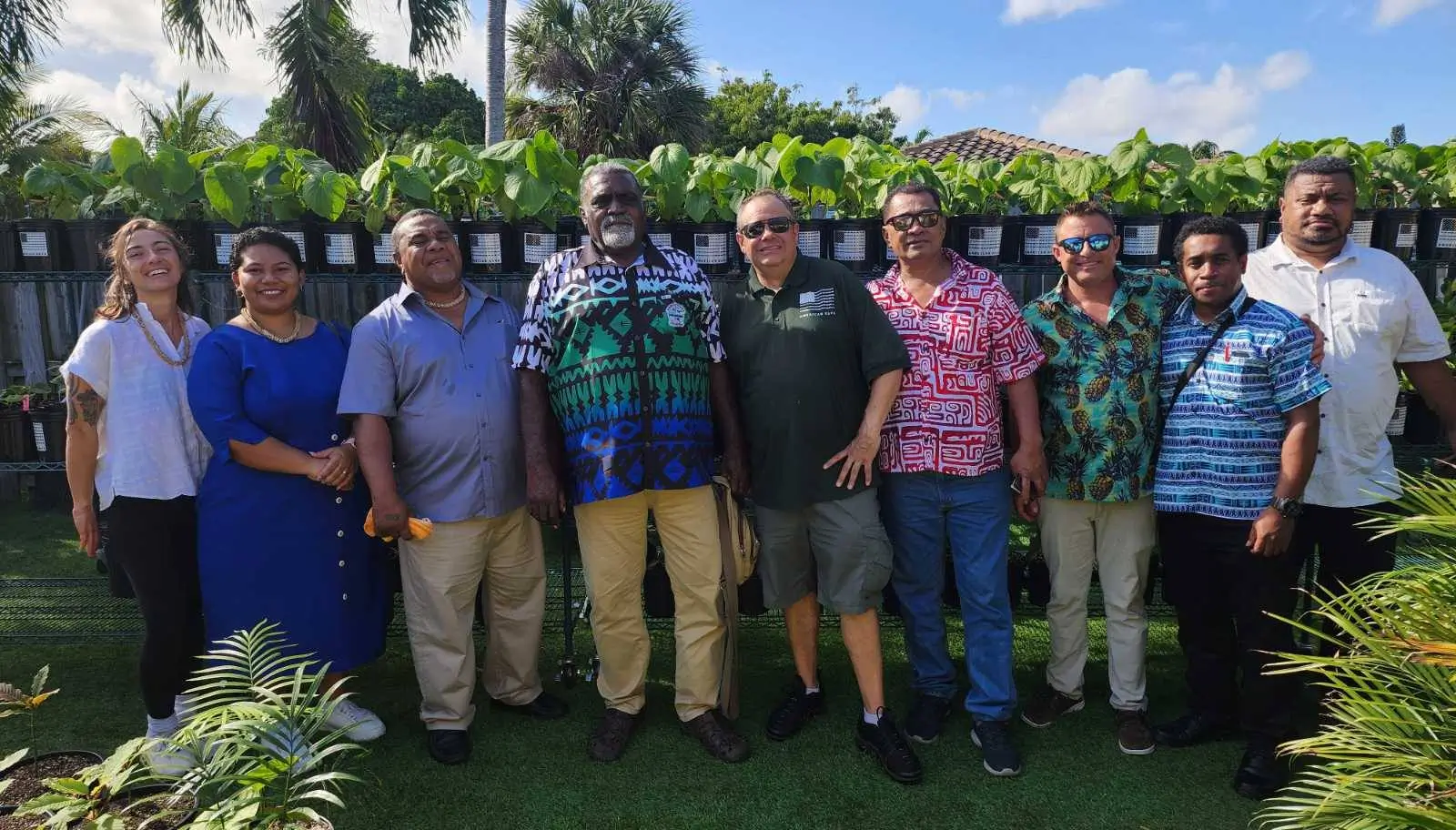
Earlier this month, Fiji’s Assistant Minister for Agriculture and Waterways, Tomasi Tunabuna, led a delegation on a Kava and Agri-Exports Scoping Mission to the United States. The delegation included representatives from the Ministry of Agriculture and Waterways and the Ministry of Trade, Co-operatives, MSMEs, and Communications.
The mission aimed to gain insights into the growing U.S. market for Pacific Island products, particularly Fijian kava, and the complexities of its supply chain. Tunabuna stressed the potential for greater exports of value-added agricultural products but highlighted the need to address supply chain requirements to unlock that potential.
During the visit, the delegation met with U.S. government agencies, distributors, Pacific Island store owners, kava associations, kava bar owners, and members of the Fijian diaspora. The United States remains the largest export market for Fijian kava, accounting for 315.01 metric tonnes out of the 501 metric tonnes exported globally in 2023, valued at FJ$26.3 million.
Feedback from U.S.-based kava importers and businesses revealed strong demand for kava, paired with concerns about maintaining product quality. To address this, the Fiji delegation discussed kava standards and market access initiatives with the U.S.-based Kava Coalition, which is conducting market research, pre-clinical trials, and work on access to European and U.K. markets.
The delegation visited U.S.-based kava growers and researchers, including American Kava, where they explored innovative disease-free propagation techniques.
Tunabuna emphasized the need for Fiji to expand kava production through commercial farming, improved husbandry practices, new technologies, and enhanced farmer support. The government’s upcoming Kava Bill will set export standards aligned with the U.S. Food and Drug Administration’s (FDA) requirements to ensure safe, high-quality products.
Fiji Trade Commissioner to North America, Alika Cooper, echoed the delegation’s optimism. He noted that the rapidly expanding kava bar sector and growing extract market are driving demand for kava in the U.S.
“The Trade Commission continues to promote Fijian-grown kava globally, ensuring quality standards and food safety remain at the forefront,” added Cooper.
This mission was coordinated by the Fiji Trade Commission of North America in partnership with the Ministry of Agriculture and the Ministry of Trade. It marks the first U.S. kava market scoping mission in over a decade, highlighting Fiji’s commitment to advancing its kava sector for the benefit of farmers and global trade.